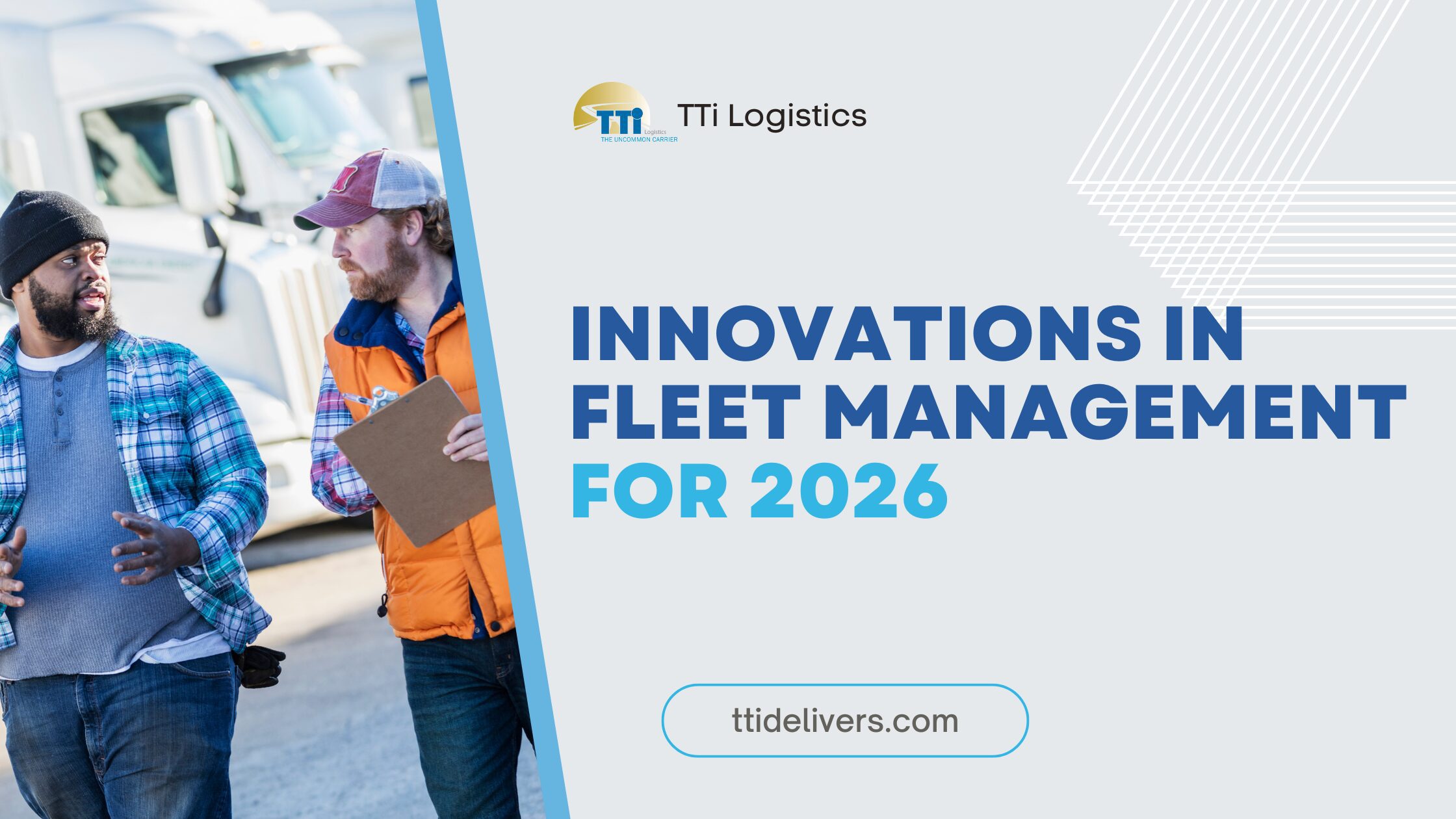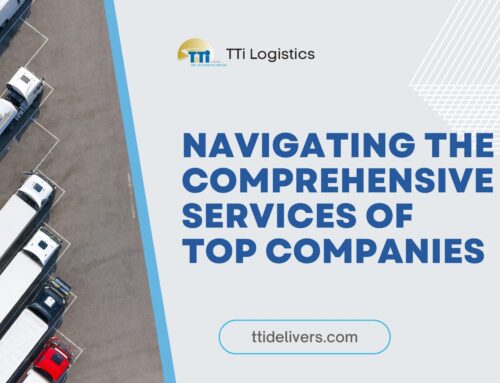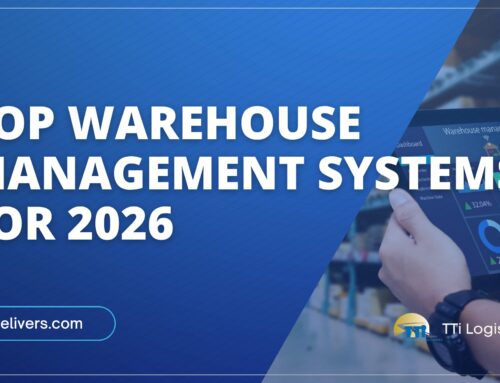Emerging Trends Driving Fleet Management in 2026
As the logistics and transportation industries continue to evolve, fleet management stands at the forefront of innovation. With the advent of new technologies, businesses are rethinking their strategies to enhance fleet efficiency, reduce costs, and improve overall performance. This blog explores the key innovations in fleet management for 2026, highlighting the trends and technologies that will shape the future of this essential sector.
Understanding Fleet Management: The Foundation for Innovation
Fleet management encompasses a variety of functions, including vehicle tracking, maintenance scheduling, route optimization, and compliance monitoring. Effective fleet management is crucial for businesses that rely on transportation, as it impacts operational efficiency, cost control, and customer satisfaction. Innovations in this field not only streamline operations but also drive sustainability and safety improvements.
Key Functions of Fleet Management
Vehicle Tracking and Monitoring
Advanced GPS systems allow businesses to track vehicle locations in real-time, providing valuable insights into fleet operations.
- Real-Time Data: With real-time tracking, companies can optimize routes, monitor driver behavior, and reduce fuel consumption. Fleet managers can access dashboards that display vehicle locations, allowing for quick decision-making in dynamic environments. Enhanced visibility into fleet performance enables proactive adjustments, improving overall efficiency. This transparency is crucial, especially when addressing delivery delays or rerouting needs, ensuring customers remain informed.
- Alerts and Notifications: Alerts for speed violations, harsh braking, or unauthorized vehicle use help maintain safety and compliance. This feature not only protects the fleet but also encourages drivers to adhere to best practices, fostering a culture of safety and accountability within the organization. Implementing a rewards system based on safe driving metrics can motivate drivers to maintain high standards.
Maintenance Scheduling
Proactive maintenance is essential for minimizing downtime and extending vehicle lifespan.
- Predictive Analytics: Utilizing data analytics can help forecast maintenance needs before issues arise, reducing unexpected breakdowns. By analyzing patterns in vehicle performance and usage, companies can identify when maintenance is necessary. This predictive approach minimizes disruptions and optimizes the maintenance budget by avoiding costly emergency repairs. Furthermore, integrating these insights with inventory management systems ensures that necessary parts are readily available when needed.
- Automated Scheduling: Software solutions can automate maintenance reminders based on mileage or usage patterns, ensuring that vehicles are always road-ready. Automated alerts can also help schedule preventive maintenance during off-peak hours, minimizing disruptions. This level of organization reduces the burden on fleet managers and allows them to focus on strategic initiatives rather than day-to-day operational tasks.
Compliance Monitoring
Staying compliant with regulations is a significant challenge for fleet operators.
- E-Logs: Electronic logging devices (ELDs) simplify the process of tracking driver hours and ensuring adherence to federal regulations. This not only saves time for drivers but also enhances accountability and transparency in operations. By providing detailed logs of hours worked, businesses can avoid penalties and legal issues related to non-compliance.
- Safety Inspections: Regular inspections can be streamlined using mobile apps, allowing drivers to report issues immediately. Implementing a standardized inspection process through digital platforms can help maintain high safety standards across the fleet. Utilizing checklists that capture vehicle conditions, driver feedback, and maintenance needs ensures comprehensive documentation and facilitates timely interventions.
Upcoming Innovations in Fleet Management for 2026
As we look ahead to 2026, several key innovations are set to transform fleet management. These advancements promise to enhance efficiency, reduce costs, and improve safety across the board.
1. Advanced Telematics
Telematics systems integrate telecommunications and monitoring systems to provide detailed insights into vehicle performance and driver behavior. This data allows for more informed decision-making and strategy development.
- Data-Driven Insights: Advanced telematics systems provide real-time data on fuel consumption, engine performance, and maintenance needs. Analyzing this data can help fleet managers identify trends and implement strategies to enhance efficiency.
- Driver Performance Monitoring: By assessing driver behavior, companies can implement training programs that focus on safe driving techniques, resulting in lower insurance costs and reduced accident rates.
2. Electric and Hybrid Fleets
As environmental concerns gain prominence, many fleets are shifting towards electric and hybrid vehicles. This transition not only reduces carbon footprints but can also lead to significant cost savings.
- Reduced Operating Costs: Electric vehicles (EVs) generally have lower fuel and maintenance costs compared to traditional gasoline vehicles. As battery technology improves, the range and performance of EVs are becoming more suitable for a wider variety of applications.
- Sustainability Initiatives: Transitioning to electric and hybrid fleets aligns with corporate sustainability goals and can enhance brand reputation among environmentally conscious consumers. Companies can promote their commitment to sustainability, appealing to a growing segment of eco-aware customers.
3. Automation and Robotics
The integration of automation and robotics into fleet management processes is gaining momentum. From automated vehicle systems to robotic process automation (RPA) in fleet management software, these technologies promise to streamline operations.
- Autonomous Vehicles: While fully autonomous fleets are still in the experimental phase, many companies are investing in technologies that support semi-autonomous driving. Features such as lane-keeping assistance and adaptive cruise control can enhance safety and reduce driver fatigue on long hauls.
- Robotic Process Automation: RPA can automate repetitive tasks in fleet management, such as data entry and report generation. This reduces human error, speeds up operations, and allows staff to focus on higher-level strategic tasks.
4. AI and Machine Learning
Artificial intelligence (AI) and machine learning (ML) are transforming fleet management by providing advanced analytics and predictive capabilities.
- Predictive Maintenance: AI can analyze vast amounts of data to predict potential vehicle failures before they occur. This proactive approach to maintenance can significantly reduce downtime and associated costs.
- Route Optimization: Machine learning algorithms can analyze traffic patterns, weather conditions, and historical delivery data to optimize routes. This not only enhances delivery times but also minimizes fuel consumption and operational costs.
5. Sustainability in Fleet Management
Sustainability is becoming a core focus for many businesses, and fleet management is no exception. Implementing sustainable practices not only reduces environmental impact but can also lead to cost savings.
- Eco-Friendly Packaging: Utilizing sustainable packaging materials for shipments reduces waste and aligns with sustainability goals. Companies can explore biodegradable options or materials made from recycled content.
- Carbon Offsetting Programs: Many organizations are adopting carbon offset programs to counterbalance their emissions. Investing in renewable energy projects or tree planting initiatives can enhance a company’s sustainability profile.
Shaping the Future: Strategies for Fleet Success
The landscape of fleet management is rapidly changing, driven by technological advancements and the need for improved efficiency, safety, and sustainability. As we move towards 2026, businesses that embrace these innovations will be better positioned to thrive in an increasingly competitive environment. By investing in advanced technologies, fostering a culture of safety, and prioritizing sustainability, companies can enhance their operational capabilities and build a resilient fleet for the future.
By staying informed about emerging trends and innovations, fleet managers can ensure they are not only meeting the demands of today but also preparing for the challenges of tomorrow. In a world where consumer expectations are constantly evolving, the ability to adapt and innovate will be crucial for long-term success in fleet management.







